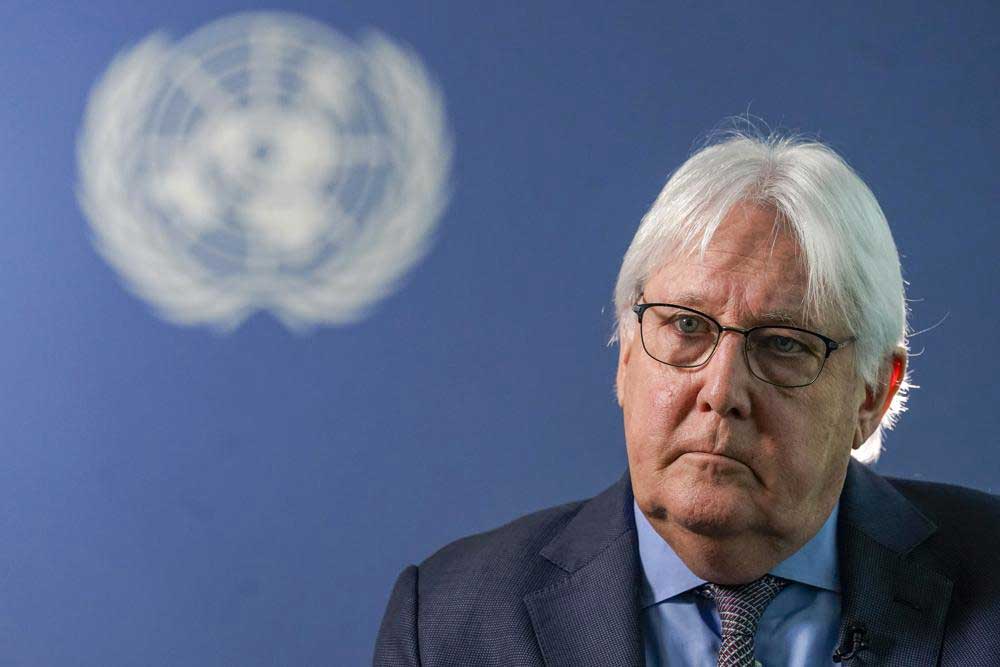The Islamic extremist insurgency in northeast Nigeria is a “very, very dangerous” crisis, and the country needs more than $1 billion in aid in 2022 to assist those hit by the decade-long conflict, United Nations humanitarian chief Martin Griffiths said.
Speaking to the Associated Press, Griffiths, head of the UN Office for the Coordination of Humanitarian Affairs, urged the world not to forget the continuing devastation caused by Boko Haram and its offshoot, the Islamic State West Africa Province, who are blamed for killing tens of thousands of residents and displacing millions more.
“This is a very different kind of operation and very difficult also to deter… a grave and clear and present danger, obviously, to the people and a priority for the government,” Griffiths said in Abuja, Nigeria’s capital. “The world needs to remember this is a tragedy that needs to be sorted out.”
Boko Haram, Nigeria’s homegrown Islamic extremist rebels, launched an insurgency in the country’s northeast in 2009, to fight against Western education and to establish Islamic sharia law in the country. Their rebellion has spread over the years to the neighboring countries of Cameroon, Niger, and Chad. Boko Haram drew international condemnation in 2014 when they abducted 276 schoolgirls in Chibok village, prompting the #BringBackOurGirls campaign. More than 100 of those abducted students are still missing.
The conflict has resulted in approximately 35,000 deaths, according to the UN Development Program. For each direct casualty, the agency estimated in a report last June, “an additional nine people, primarily children, have lost their lives due to lack of food and resources.”
Nigeria’s military continues to try to quell the violence, especially in northeastern Borno state and the Lake Chad region, but the conflict has continued.
The faction allied with the Islamic State group in mid-January released a video showing dozens of child fighters training in open fields and being taught in classrooms. The video is a “clear” message that the extremists “are here to stay” and “a new generation is coming,” according to Vincent Foucher of the International Crisis Group.
Nigeria’s security forces have also beefed up their air capacity “which means it is difficult for [the Islamic State offshoot] to get away with the large attacks it carried out two or three years ago,” Foucher added.

Griffiths said it’s not clear when displaced populations will be able to return to their homes, although it is a crucial goal so that people are given hope “that maybe it’s not an indefinite exile from their villages.”
The UN estimates that Nigeria’s northeast will need more than $1 billion in development assistance this year, in addition to government spending, Griffiths said. The funds are needed to provide food and health care to the millions of people displaced and to those who remain at their homes but are vulnerable to attacks. Nigerian officials “understand this is not a quick fix,” he said after meetings with government authorities.
The northwest and central parts of Nigeria are also experiencing violent attacks, carried out by armed groups who had traditionally worked as nomadic cattle herders and are caught up in a decades-long conflict with Hausa farming communities over access to water and grazing land.
Nigeria’s fight against extremists “can’t be won on the battlefield,” said the UN humanitarian chief. He urged more community development efforts.
“You win civil wars in the minds of the people who live there,” he said. “If you don’t have the communities on your side, it doesn’t really matter how much else you’ve got on your side. You won’t make peace.”